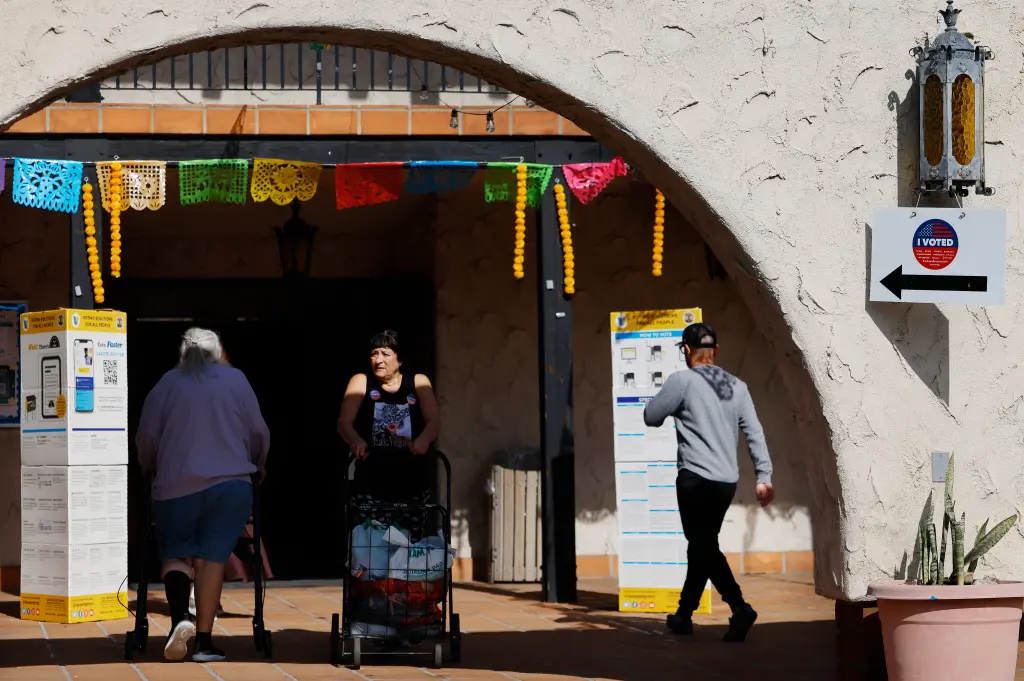California Republicans File Federal Lawsuit Against Gov. Gavin Newsom, Claim Proposition 50 Illegally Favored Latino Voters Through Gerrymandered Districts
California’s political landscape was thrown into turmoil late Tuesday night after the state’s Republican Party filed a federal lawsuit against Governor Gavin Newsom, alleging that the newly passed Proposition 50 unfairly uses race to tilt congressional districts in favor of Latino voters. The lawsuit, filed in the U.S. District Court for the Central District of California, represents one of the most aggressive legal challenges yet to the state’s redistricting process — and one that could reshape the future of California’s elections for the next decade.

Proposition 50, approved by voters on November 4, allows the California Legislature — now controlled by a Democratic supermajority — to take over congressional redistricting duties that were previously handled by an independent citizens’ commission. The measure passed with just over 56% of the vote, signaling voter trust in lawmakers to lead the process. But less than twenty-four hours later, Republicans filed suit, arguing that Democrats abused their control to draw racially gerrymandered maps designed to cement their power and specifically favor Latino-majority districts.
According to court documents obtained by multiple outlets, including the New York Post, the lawsuit names Governor Newsom, Secretary of State Shirley Weber, and the California State Legislature as defendants. It argues that the redistricting process “placed racial identity above all other constitutional and traditional criteria,” creating what it calls “a discriminatory political map that divides communities and violates the equal protection clause.”
The plaintiffs, led by the California Republican Party, allege that the new district boundaries were drawn primarily to expand Latino representation, even in areas where such population blocs did not meet the requirements under the federal Voting Rights Act. “This was not about fair representation,” the complaint states. “It was about racial engineering designed to manipulate political outcomes.”

Republican attorneys cite internal testimony and public comments from legislative consultants involved in the mapping process, one of whom allegedly said that his “number one priority” was ensuring a Latino-majority district in Los Angeles County and another with a Latino voting-age population exceeding 35%. To GOP officials, those remarks are proof that Democrats crossed a constitutional line — intentionally prioritizing race over geography, compactness, and community cohesion.
The lawsuit also seeks to invalidate Proposition 50 itself, arguing that the ballot measure’s language was deceptive and failed to inform voters that the change could eliminate independent oversight in redistricting. “Californians were misled,” said Jessica Millan Patterson, chair of the California Republican Party, in a statement following the filing. “This was not a reform — it was a power grab, one that weaponized race and undermined every voter’s right to fair and equal representation.”
Governor Newsom’s office quickly responded, calling the lawsuit “baseless political theater.” In a statement released Wednesday morning, a spokesperson said, “This is just another partisan stunt from a party that has repeatedly lost elections in California. Proposition 50 was approved by the voters, and it reflects our state’s commitment to fair and inclusive representation. We’re confident this lawsuit will be dismissed.”

Still, the issue strikes at a sensitive fault line in American democracy — the balance between representation and race. Redistricting has long been one of the most controversial aspects of political power in the United States, and California, with its population diversity and 52 congressional seats, stands at the heart of that debate. Legal experts say the case could hinge on whether the court finds that lawmakers used race as the “predominant factor” in drawing district lines — a standard set by previous Supreme Court rulings.
If Republicans can prove that race outweighed all other traditional factors, the maps could be declared unconstitutional. However, Democrats argue that considering racial demographics is both lawful and necessary to ensure minority communities are fairly represented under the Voting Rights Act. The challenge, they say, is not about discrimination but about inclusion.
“This lawsuit is an attempt to suppress representation and silence communities of color,” said state Senator Maria Elena Durazo, a Democrat from Los Angeles. “For generations, Latino voters were marginalized in California politics. Proposition 50 ensures they have the voice they deserve.”
The controversy around Proposition 50 mirrors similar battles across the country. In Texas, Republicans face lawsuits over alleged racial gerrymandering that dilutes Latino and Black voting power. In contrast, California’s case flips the script — here, Republicans argue that Democrats went too far in the other direction, intentionally over-amplifying one group’s influence for political gain.
Political analysts say the case could set a precedent for how states handle race in redistricting. “California is becoming the test case for what happens when one party dominates not just the legislature but the map-making process,” said Loyola Law School professor Jessica Levinson. “If courts decide that Proposition 50 crosses constitutional lines, it could spark similar challenges in other blue states.”
Beyond the legal implications, the optics are politically explosive. Proposition 50 was championed by Governor Newsom as part of his broader campaign to “restore balance and fairness” in representation. During his victory press conference Tuesday night, Newsom said the measure “reflects the California Dream — one where every community, every neighborhood, and every culture has a seat at the table.” Within hours, that optimism gave way to a legal storm.
At the heart of the GOP’s argument is the idea that Democrats “weaponized” California’s demographic shifts for partisan gain. Over the past two decades, Latino voters have become the state’s largest ethnic group, now accounting for nearly 40% of the population. Republicans claim Proposition 50 artificially consolidated that population into strategically designed districts, ensuring long-term Democratic advantages in key battleground areas like Orange County, the Central Valley, and parts of Los Angeles.
“These maps weren’t drawn for fairness,” said attorney Harmeet Dhillon, representing the plaintiffs. “They were drawn to guarantee that Democrats never lose power again. Race was their tool, and they used it recklessly.”
Democratic officials reject that notion. They insist the maps reflect population data, comply with federal standards, and give historically under-represented communities a stronger voice in Congress. They argue that any racial patterns visible in the maps result naturally from California’s demographic makeup — not manipulation.
Legal scholars caution that the case will take months, if not years, to resolve. Federal courts typically convene three-judge panels for redistricting challenges, and decisions can be appealed directly to the Supreme Court. If the GOP wins, California could be forced to redraw its congressional boundaries before the 2026 midterms — an unprecedented disruption with major implications for national politics.
In the meantime, both parties are using the case to rally their bases. Republicans frame the lawsuit as a fight for equality under the law, while Democrats see it as an attack on representation for minority voters. Outside the courtroom, advocacy groups on both sides are mobilizing quickly, hosting press conferences and fundraising drives as the legal battle begins.
For now, the future of Proposition 50 hangs in the balance. The courts must determine whether California’s new maps represent progress or partisanship — inclusion or manipulation. Whichever side prevails, one thing is certain: this case will not stay confined to California. In a nation increasingly divided over who gets to draw the lines of power, the outcome here could redefine the boundaries of race, politics, and representation nationwide.


